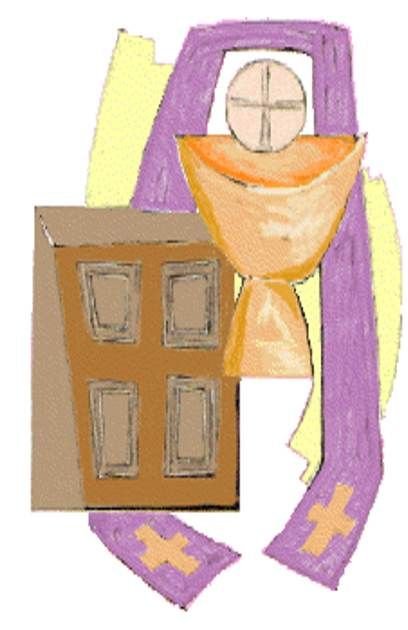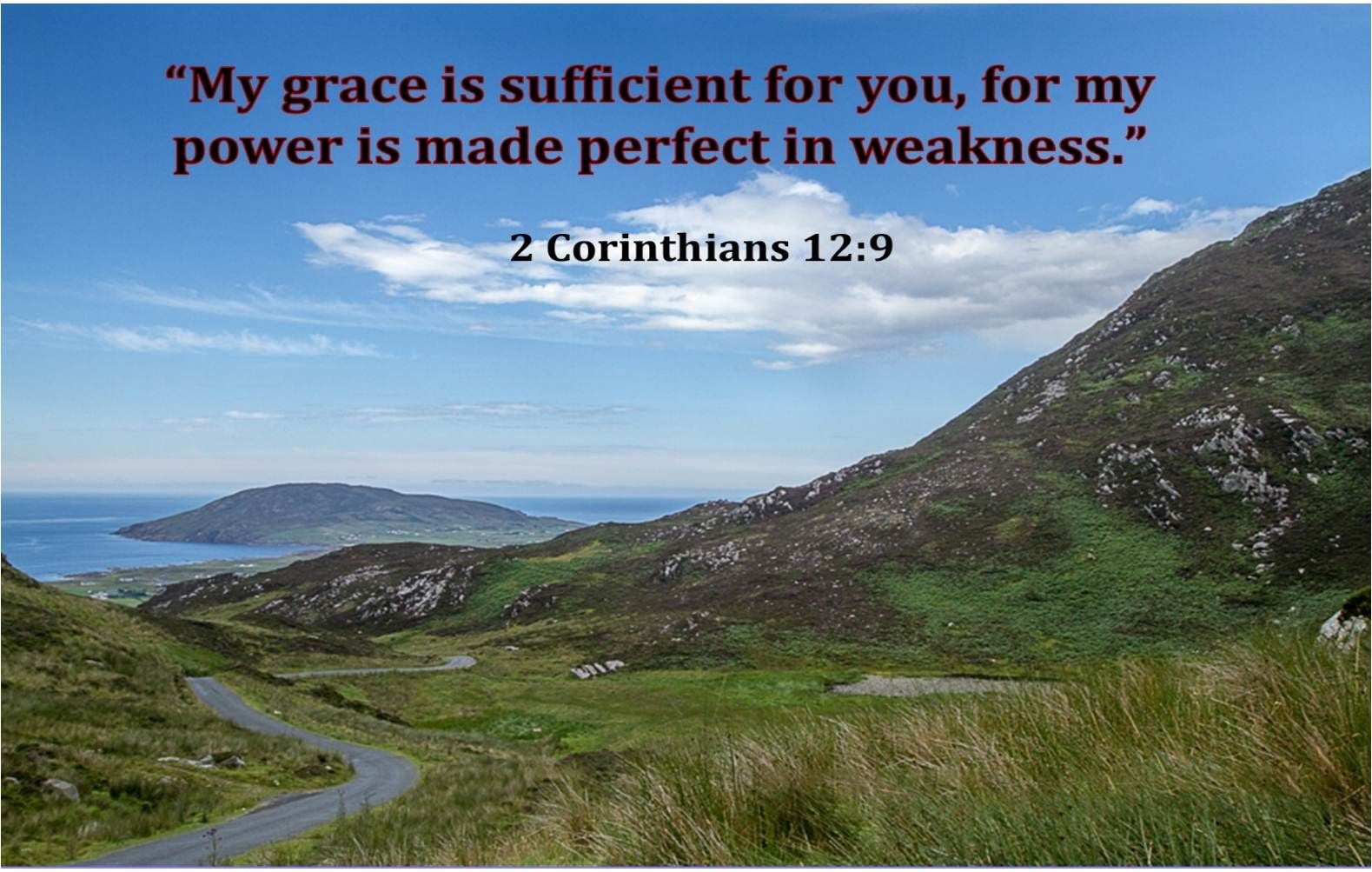Kevin Doherty, Adm., Parish of Clonmany
Welcome
 A warm welcome to our reflections on the Sacrament of Holy Orders, or, what many might have heard it called … ‘Priesthood’. Please visit this page with an open heart and a healthy curiosity.
A warm welcome to our reflections on the Sacrament of Holy Orders, or, what many might have heard it called … ‘Priesthood’. Please visit this page with an open heart and a healthy curiosity.
We sometimes hear ‘priesthood’ described as a ‘vocation’. But, of course, every Catholic has a ‘vocation’, and no one vocation is more important than any other. Pope Francis reminds us of this when he tells us “No one is more baptised than anyone else.”
This shows us how (and why) baptism is the first sacrament, and the one that calls us equally, and to equality, before GOD. As all first Holy Communion children will tell us, when we are baptised we become part of a great family … the Family of GOD. And, like any family, the children generally end up with different roles — which means, because we’re the children in GOD’S Family, so it is with us. We call this ‘role’ in the Family of GOD our ’vocation’.
A ‘Vocation’, then, is a call by Christ to live our lives in a particular way. This is why it is important to get away from the idea that a ’vocation’ is something, only, to do with religious life or ordained priesthood. Some in GOD’s Family might have that role, but, in the overall scheme, very few. Many more, for instance, will be called to the married life, or to be parents. But, without doubt, some in our Family of GOD will indeed be called to live their lives as ordained priests (or ‘presbyters’), and it is this wonderful calling that we are looking at here.
Figuring out our vocation
Figuring out our ‘role’, or our ‘vocation’ in GOD’s Family might be compared to sawing wood. If we saw against the grain in the wood, then the saw will stick and the movement will not be easy. This is a sign that the way we’re doing things is not the best way. However, when we saw the wood with the grain it all moves a lot more smoothly and is much easier. This is a sign that the way we’re going about things in a better way. So it is when we’re trying to figure out our ’role’ in the Family of GOD. It’s just asking the question we all ask ourselves at some time: “What am I going to do with my life?”
Some pathways in life we will know, easily enough, are not for us (following them would be like going ‘against the grain’). It’s the other pathways, the other options and choices open to us, that we are drawn to. And, as life goes on, these options and choices will be narrowed down. If we’re doing this as honestly as we can, it should feel like we’re going ’with the grain’. This honest approach to figuring out (or, a good holy word, ‘discerning’) will bring some to consider living their lives as ordained priests (presbyters), and serving the Family of GOD in that way. We call this pathway of life in our Church the ‘Sacrament of Holy Orders’. Let’s take a closer look.
What is the Sacrament of Holy Orders … and how might I know if it’s for me?
Here’s the technical bit:
- The Sacrament of Holy Orders is the sacrament through which the mission entrusted by Christ to his apostles, continues to be exercised in the Church until the end of time: thus it is a sacrament of apostolic ministry. It includes three degrees: episcopate (bishop), presbyterate (priest), and diaconate (deacon).
Catechism of the Catholic Church, # 1536
A first indication, and a necessary sign, of a call to ’Holy Orders’ is that, at some level, there is an attraction to the vision and message of Jesus, and a desire to use our energies and abilities for the kind of ministry that he was about. Also, we have a sense that to follow this pathway offers both meaning and happiness … indeed, a deep and lasting happiness.
Here is another sign: If GOD has chosen you to sacramental priesthood (Holy Orders), then, without a doubt, He will make you think about it — even if you do not want to! And these thoughts will not go away easily. In this way, Christ’s call to those whom he chooses to be priests is usually experienced as a growing conviction or desire to give one’s life to GOD. We do not so much hear a voice calling us. Rather, the Holy Spirit awakens within our souls an enthusiasm for the things of God, enkindling a desire, an excitement, to serve Christ and to express his love in the telling of His Story, in the part of world we occupy.
If these indications, or signs, are part of your experience, at some stage you will likely feel the need to act on them. A helpful way to do this is to talk to a priest you feel you can trust, and who will be honest with you. The priest will have no agenda other than helping you figure out (discern) what way the Holy Spirit might be calling you. He will have no interest in ‘recruiting’ you to be a priest, because that call belongs, only, to the Holy Spirit.
What kind of things might being a Presbyter (a priest) involve?
A diocesan priest (as opposed to a priest of a Religious Order (such as a Jesuit, or a Franciscan) exercises his ministry at the service and permission of the Bishop of the diocese (in the case of Clonmany parish, Derry). Ordinarily his life will be one of proclaiming God’s Word, celebrating the Sacraments, visiting the sick at home and in hospital, visiting schools, burying the dead, and serving the people of God, of which he himself is a member.
The life of a diocesan priest is challenging but, also, fulfilling and rewarding. No two days are the same. Each new day brings with it new experiences, new encounters with people, and new encounters with GOD. The diocesan priest through his ministry witnesses to the presence of Christ in the world of everyday things. The diocesan priest, if his life is surrendered to the Holy Spirit, is in essence a signpost to GOD — as, of course (for instance), in an extraordinary way, are parents.
For a diocesan priest his community is his parish. Whatever parish he is asked to minister in becomes his home, his family. The diocesan priest is welcomed into the family of the parish. He is at one with them.
Ultimately, of course, it is GOD who calls to the Sacrament of Holy Orders.
And certainly, why one person thinks about priesthood and another doesn’t is a mystery — in holy words, a movement of ‘grace’. This means that, if a person does consider priesthood then that idea must have been planted in his heart and mind by GOD. Why GOD might call you is a mystery. You may look around you and see people who seem more gifted, holier, more capable and wonder why has God not chosen them? Saint Paul can help us here:
He reminds us that God chooses the weak and makes them strong. And so, if you are asking yourself the question: ‘Why me?’, try asking another question: ‘Why not me?’
